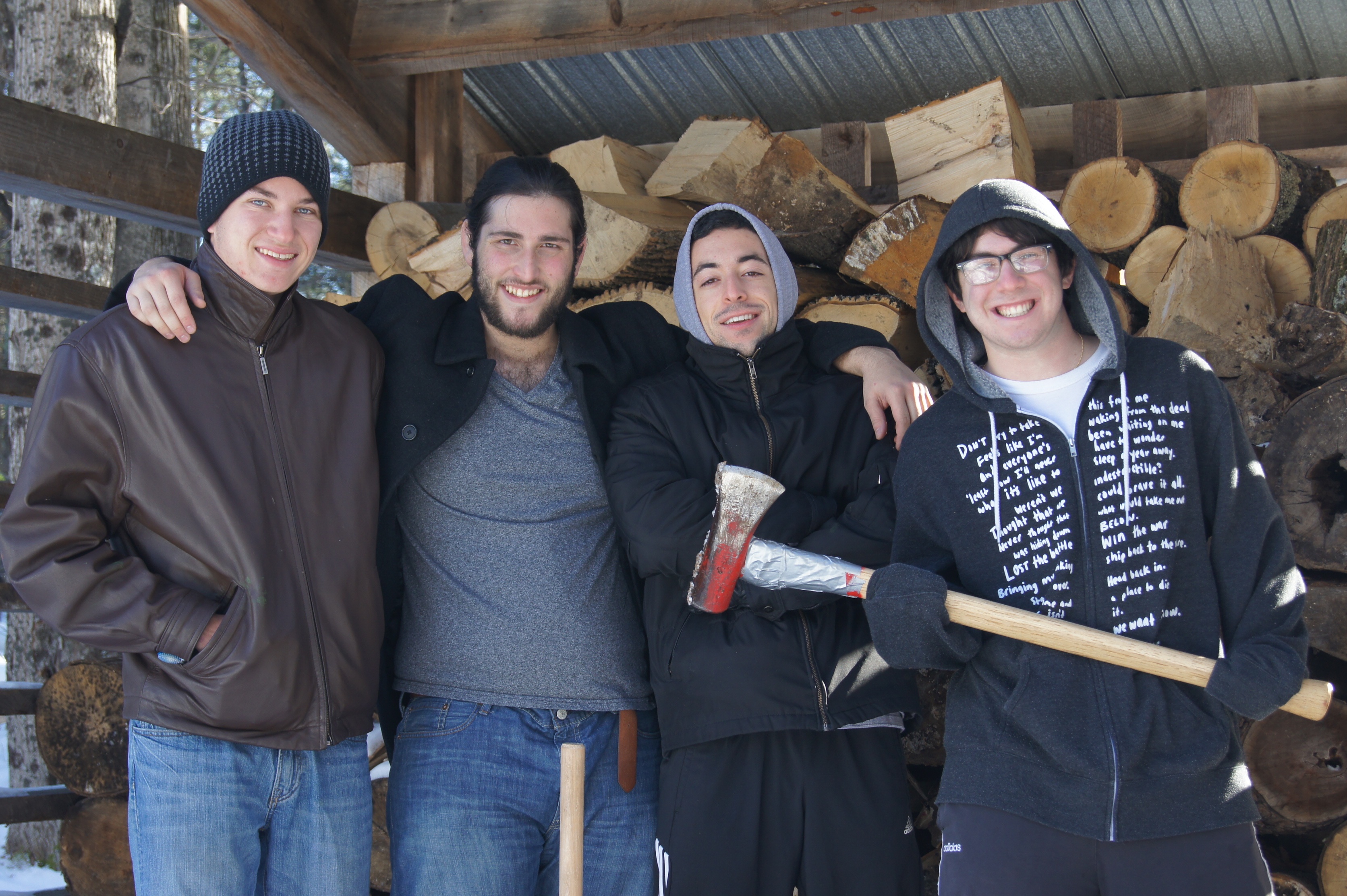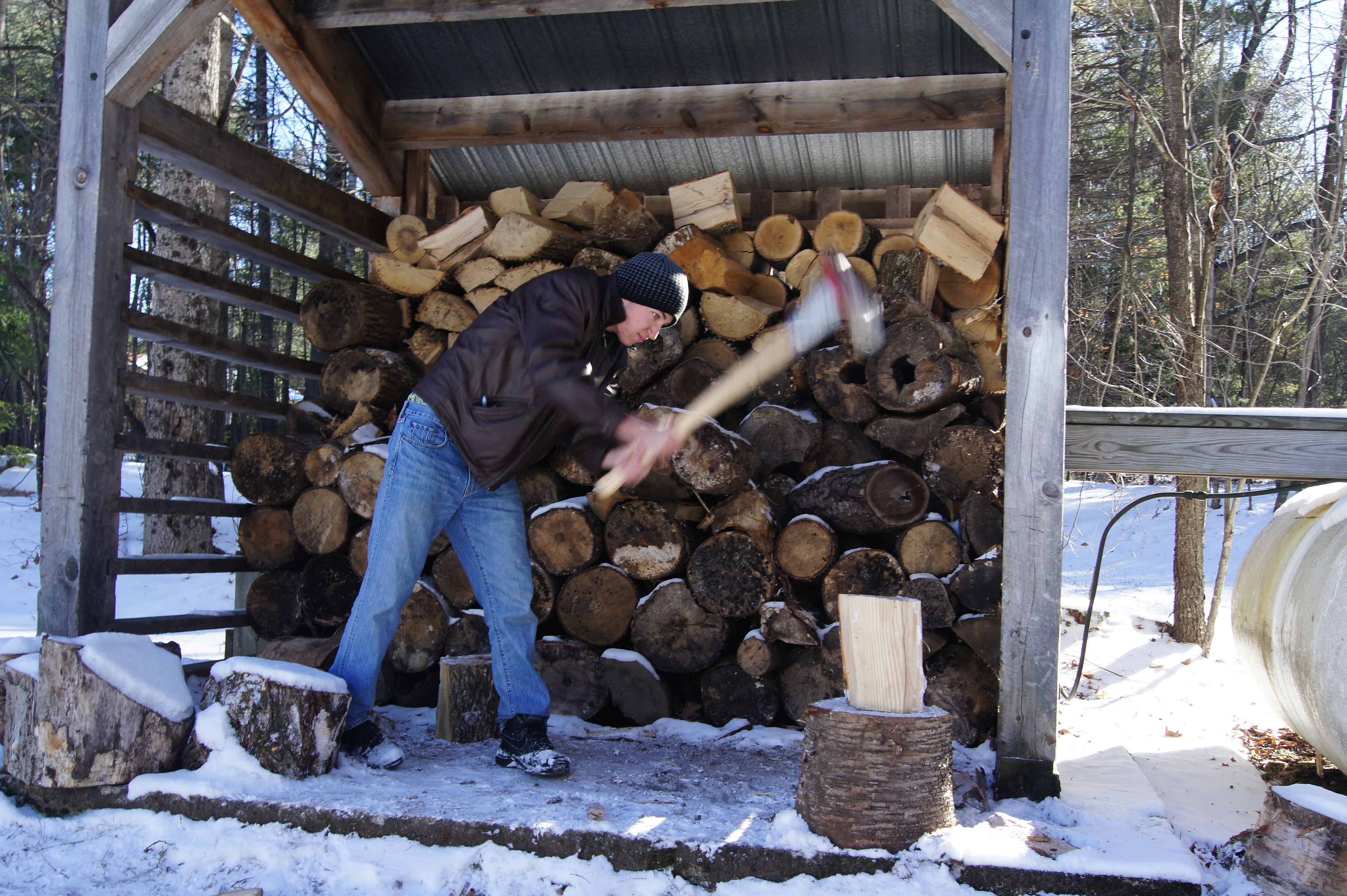 On the Saturday Night and Sunday before Chanukah this year, we had opportunity together with the Lchaim Student Group to spend a night and morning up in Dippikill, the Adirondack Wilderness Retreat owned and operated by the University at Albany Student Association. Early Sunday morning, there was light snow cover, and a peaceful calm and quiet. I went out back to the wood shed to try my hand at log-splitting to replenish the wood we used in the fireplace. I figured my Talmudic hair-splitting background could be helpful here. Nothing doing. I tried both the ax and the sledge-hammer, but neither worked to split the round logs. Some time later the guys woke up and I challenged them to try it too. Same result. We figured there must be some technique that we’re missing.
On the Saturday Night and Sunday before Chanukah this year, we had opportunity together with the Lchaim Student Group to spend a night and morning up in Dippikill, the Adirondack Wilderness Retreat owned and operated by the University at Albany Student Association. Early Sunday morning, there was light snow cover, and a peaceful calm and quiet. I went out back to the wood shed to try my hand at log-splitting to replenish the wood we used in the fireplace. I figured my Talmudic hair-splitting background could be helpful here. Nothing doing. I tried both the ax and the sledge-hammer, but neither worked to split the round logs. Some time later the guys woke up and I challenged them to try it too. Same result. We figured there must be some technique that we’re missing.
 Zach came out a little later and gave us a tutorial. A trick of log-splitting is to use the arc of the swing, so that the ax falls of its own weight (not your weight or pressure) and that’s only to create the start of a crack in the wood. There are two tools used in log-splitting (sometimes more, for example some use a wedge to score the wood) the ax creates the initial crack, the sledge-hammer is used to actually split the wood. Getting the initial crack is harder than it may seem.
Zach came out a little later and gave us a tutorial. A trick of log-splitting is to use the arc of the swing, so that the ax falls of its own weight (not your weight or pressure) and that’s only to create the start of a crack in the wood. There are two tools used in log-splitting (sometimes more, for example some use a wedge to score the wood) the ax creates the initial crack, the sledge-hammer is used to actually split the wood. Getting the initial crack is harder than it may seem.
All this gave me new insight into Tanya chapter 29. Chassidus generally tends to be more upbeat, encouraging and positive focused, unlike Mussar which tends to be stricter, firmer, and a little harsher on people. Tanya 29 is one of those sections of Chassidus that employs somewhat of a Mussar approach. It quotes the Zohar which says, “A log that won’t catch fire needs to be splintered, so too, a body that won’t catch to the fire of the soul, needs to be broken down.”
I’m more familiar now with that log that won’t catch. Round logs don’t burn as well, because they are fully surrounded by a semi-protective membrane. Their vulnerable insides are not exposed to the flame. Splintering the log allows the fire to easily and readily get to that inside, exposed wood. I always read Tanya 29 as needing to break the body down. My humbling experience with log-splitting showed me that that initial crack is really the main effort. The main struggle is for the body to give, to agree, to allow a sliver of holiness to shine through, to acknowledge that the body can not be whole without the soul. This is already more of a Chassidic language than Mussar. I see Tanya 29 in a different light.
And Zach’s line about “letting the weight of the ax do the work” is also very insightful here. We don’t have to break our bodies. But we ought to allow for that crack to happen, we have to be open for it to happen, we have to let go in a focused way, much as it is with the arc of the ax and it’s fall into the wood.
